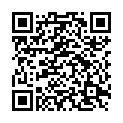|
|
|
| Module code: E901 |
|
2V+1U+1PA (4 hours per week) |
|
5 |
| Semester: 9 |
| Mandatory course: yes |
Language of instruction:
German |
Assessment:
Oral examination, project work
[updated 12.03.2010]
|
E901 Electrical Engineering, Master, ASPO 01.10.2005
, semester 9, mandatory course
|
60 class hours (= 45 clock hours) over a 15-week period.
The total student study time is 150 hours (equivalent to 5 ECTS credits).
There are therefore 105 hours available for class preparation and follow-up work and exam preparation.
|
Recommended prerequisites (modules):
None.
|
Recommended as prerequisite for:
|
Module coordinator:
Prof. Dr. Benedikt Faupel |
Lecturer:
Prof. Dr. Benedikt Faupel
[updated 12.03.2010]
|
Learning outcomes:
In this module students will acquire expertise in selecting and applying complex methods and tools for optimizing multivariate control systems. The project work that forms part of the module provides students with an opportunity to apply the theoretical tools to practically relevant control problems. With the skills and knowledge acquired in this course, students will have the confidence to select and apply the methods learned to complex control problems.
[updated 12.03.2010]
|
Module content:
1.State-space models and multivariate control (state observers, Kalman filters)
2.Adaptive control techniques
3.Introduction and application of the H∞ (‘H infinity’) criterion
4.Robust control
5.Use of mathematical methods (neural networks, genetic algorithms)
6.Project work based on a range of industrial and lab applications (e.g.:
controlling a gyroscopic system, drive control for paper and metal foils moving
at high speeds, dosimetry and weighing technology in the process industries,
control applications in the automotive sector)
7.Short talks by students on innovative control concepts as part of the lectures
with discussion of results.
[updated 12.03.2010]
|
Teaching methods/Media:
Lecture notes, overhead transparencies, video projector, PC, CD
[updated 12.03.2010]
|
Recommended or required reading:
At the beginning of the course, students will be issued with a CD containing all the teaching material used in this module. The CD also contains a complete and regularly updated list of recommended reading materials.
[updated 12.03.2010]
|


